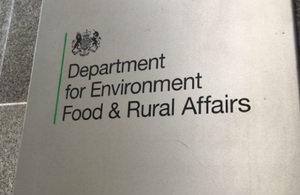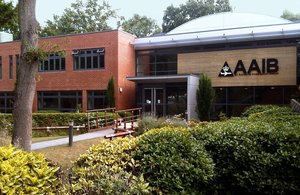-
New UK sanctions target the daughters of President Putin and his Foreign Minister Sergei Lavrov.
-
Government analysis shows more than £275 billion of Putin’s war chest has been frozen by co-ordinated UK and international sanctions in recent weeks.
-
Russia heading for the deepest recession since the collapse of the Soviet Union as sanctions hit Putin’s ability to wage war in Ukraine.
The lavish lifestyles of the Kremlin’s inner circle will be further targeted from today as the UK sanctions the daughters of President Vladimir Putin and his Foreign Minister Sergey Lavrov.
Katerina Vladimirovna Tikhonova and Maria Vladimirovna Vorontsova, the daughters of President Putin, and Yekaterina Sergeyevna Vinokurova, daughter of Foreign Minister Sergey Lavrov, will be subject to travel bans and asset freezes.
The UK has coordinated these sanctions with the US, in another show of global unity on action against Russia’s illegal invasion of Ukraine. This follows the UK’s sanctioning of Polina Kovaleva, Sergey Lavrov’s step-daughter on 25 March.
These designations come into force as new analysis shows the devastating impact of the sanctions imposed on Russia’s economy in recent weeks. Sanctions imposed by the UK and its international partners are having deep and damaging consequences for Putin’s ability to wage war, with £275 billion – 60% of Russian foreign currency reserves – currently frozen.
The analysis shows Russia is heading for the deepest recession since the collapse of the Soviet Union, as estimates for Russia’s GDP growth in 2022 now range from -8.5 per cent to -15 per cent. Longer term, expert predictions suggest a continuing economic hit, with GDP growth depressed as the country is cut off from Western technology.
The Kremlin faces tough choices at home as a result of its aggression abroad. Sanctions imposed in response to Putin’s abhorrent actions have triggered rapid inflation, with average consumer prices up 8.67 per cent since the invasion.
Foreign Secretary Liz Truss said:
Our unprecedented package of sanctions is hitting the elite and their families, while degrading the Russian economy on a scale Russia hasn’t seen since the fall of the Soviet Union.
But we need to do more. Through the G7, we are working with partners to end the use of Russian energy and further hit Putin’s ability to fund his illegal and unjustified invasion of Ukraine.
Together, we are tightening the ratchet on Russia’s war machine, cutting off Putin’s sources of cash.
By freezing the assets and limiting the travel of Putin’s allies, the UK Government is sealing off reservoirs of cash funding the conflict, while also making sure those who have benefited from Putin’s rule feel the consequences.
Oligarchs and other wealthy Russians are amongst those hit hardest by the sanctions, which have drastically limited their access to luxury consumer goods and access to international markets.
The defence industry is also being targeted by Western sanctions, with the UK already having led the way in sanctioning Rostec, United Aircraft Corporation, United Shipbuilding Corporation and the world’s biggest main battle tank manufacturer, Uralvagonzavod. Sanctions against Kronshtadt, the main producer of Kronshtadt Orion drones and other unmanned aerial vehicles widely used during Russia’s invasion of Ukraine, will now make it harder to replace these drones.
Restricting access to assets and components will have a material effect on the speed and efficiency with which weapons manufacturers can supply Putin’s war effort.
Russia’s narrative that Western sanctions have caused the rise in global food prices is a blatant lie. We stand in solidarity with our partners across the world who have to bear the rising price of President Putin’s unilateral choice to wage war in Europe. The resulting rise in food insecurity is being felt disproportionately by the most vulnerable and we will pull every lever we have to keep markets open and protect food supplies.
The Russian leadership must immediately allow safe, rapid and unimpeded humanitarian access and make safe passages work, enabling humanitarian aid to be delivered to besieged cities and civilians to reach safety.
Background
-
Since the unprovoked and illegal invasion of Ukraine began in February, the UK has sanctioned over 1,200 individuals and businesses – including 76 oligarchs and 16 banks with a global net worth of £150 billion and £500 billion respectively.
-
Asset freeze – An asset freeze prevents any UK citizen, or any business in the UK, from dealing with any funds or economic resources which are owned, held or controlled by the designated person and which are held in the UK. It will also prevent funds or economic resources being provided to or for the benefit of the designated person.
-
Travel ban – A travel ban means that the designated person must be refused leave to enter or to remain in the United Kingdom, providing the individual be an excluded person under section 8B of the Immigration Act 1971.
-
Transport sanction – Recently introduced powers make it a criminal offence for any Russian aircraft to fly or land in the UK and give the government powers to remove aircraft belonging to designated Russian individuals and entities from the UK aircraft register, even if the sanctioned individual is not on board. Russian ships are also banned from UK ports.
-
The UK Sanctions List is updated every time a decision is made to make, vary or revoke a designation. The list is published on GOV.UK and sets out which people, entities and ships are designated or specified under regulations made under the Sanctions and Anti-Money Laundering Act 2018, and why.


